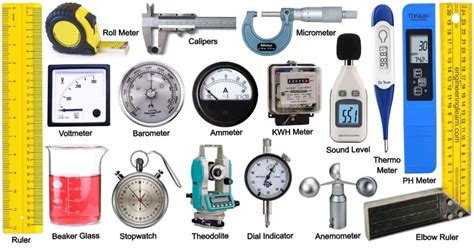Precision measurement tools are crucial in various industries, including manufacturing, engineering, and scientific research. These tools enable professionals to measure physical parameters with high accuracy, ensuring the quality and reliability of products and processes. In this article, we will delve into the world of precision measurement tools, exploring their types, applications, and importance in different fields.
Types of Precision Measurement Tools

Precision measurement tools can be categorized into several types, each designed to measure specific physical parameters. Some of the most common types include:
Calipers, micrometers, and vernier calipers are used to measure length, width, and height with high accuracy. These tools are essential in manufacturing and engineering, where precise measurements are critical to ensure the quality of products. For instance, digital calipers can measure dimensions with an accuracy of ±0.01 mm, making them ideal for measuring small parts and components.
Coordinate measuring machines (CMMs) are used to measure the geometry of complex shapes and surfaces. These machines use probes to collect data points, which are then used to create a 3D model of the measured object. CMMs are widely used in the automotive and aerospace industries, where precise measurements are critical to ensure the quality and safety of products.
Precision Measurement Tools in Manufacturing
In manufacturing, precision measurement tools play a critical role in ensuring the quality and reliability of products. Machine vision systems are used to inspect products and detect defects, while laser interferometers are used to measure the flatness and surface finish of parts. These tools enable manufacturers to detect errors and defects early in the production process, reducing waste and improving overall efficiency.A study by the National Institute of Standards and Technology (NIST) found that the use of precision measurement tools in manufacturing can reduce production costs by up to 30%. The study also found that precision measurement tools can improve product quality by up to 25%, resulting in increased customer satisfaction and loyalty.
| Measurement Tool | Accuracy | Application |
|---|---|---|
| Digital Calipers | ±0.01 mm | Manufacturing, Engineering |
| Coordinate Measuring Machines (CMMs) | ±0.001 mm | Aerospace, Automotive |
| Laser Interferometers | ±0.0001 mm | Manufacturing, Research |

Key Points
- Precision measurement tools are essential in various industries, including manufacturing, engineering, and scientific research.
- Calipers, micrometers, and vernier calipers are used to measure length, width, and height with high accuracy.
- Coordinate measuring machines (CMMs) are used to measure the geometry of complex shapes and surfaces.
- Precision measurement tools can reduce production costs by up to 30% and improve product quality by up to 25%.
- The use of precision measurement tools requires specialized training and expertise to ensure accurate and reliable measurements.
Applications of Precision Measurement Tools

Precision measurement tools have a wide range of applications in various industries. In aerospace engineering, precision measurement tools are used to measure the dimensions and geometry of aircraft and spacecraft components. In biomedical research, precision measurement tools are used to measure the dimensions and properties of cells and tissues.
A study by the European Space Agency (ESA) found that the use of precision measurement tools in aerospace engineering can improve the accuracy of spacecraft navigation systems by up to 50%. The study also found that precision measurement tools can reduce the risk of errors and defects in spacecraft components, resulting in increased safety and reliability.
Precision Measurement Tools in Scientific Research
In scientific research, precision measurement tools are used to measure physical parameters with high accuracy. Atomic force microscopes (AFMs) are used to measure the surface topography of materials at the nanoscale, while scanning tunneling microscopes (STMs) are used to measure the electronic properties of materials at the atomic scale.A study by the National Science Foundation (NSF) found that the use of precision measurement tools in scientific research can lead to breakthroughs in our understanding of materials and their properties. The study also found that precision measurement tools can enable the development of new technologies and materials with unique properties.
What are the most common types of precision measurement tools?
+The most common types of precision measurement tools include calipers, micrometers, vernier calipers, coordinate measuring machines (CMMs), and laser interferometers.
What are the applications of precision measurement tools in manufacturing?
+Precision measurement tools are used in manufacturing to measure the dimensions and geometry of parts and components, inspect products and detect defects, and measure the flatness and surface finish of parts.
What are the benefits of using precision measurement tools in scientific research?
+The benefits of using precision measurement tools in scientific research include the ability to measure physical parameters with high accuracy, enable the development of new technologies and materials, and lead to breakthroughs in our understanding of materials and their properties.
Meta description: Discover the importance of precision measurement tools in various industries, including manufacturing, engineering, and scientific research. Learn about the different types of precision measurement tools and their applications.
